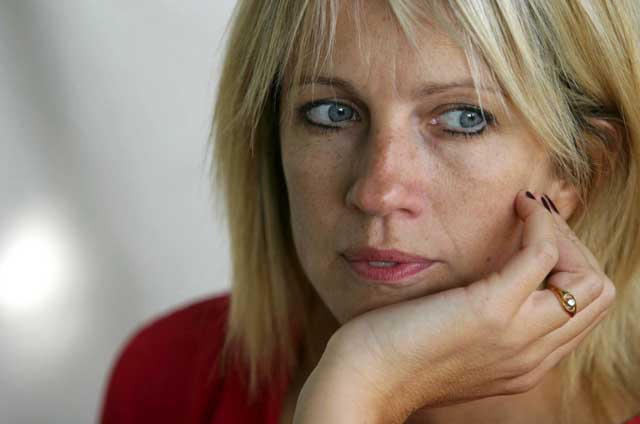Then, By Julie Myerson

Your support helps us to tell the story
From reproductive rights to climate change to Big Tech, The Independent is on the ground when the story is developing. Whether it's investigating the financials of Elon Musk's pro-Trump PAC or producing our latest documentary, 'The A Word', which shines a light on the American women fighting for reproductive rights, we know how important it is to parse out the facts from the messaging.
At such a critical moment in US history, we need reporters on the ground. Your donation allows us to keep sending journalists to speak to both sides of the story.
The Independent is trusted by Americans across the entire political spectrum. And unlike many other quality news outlets, we choose not to lock Americans out of our reporting and analysis with paywalls. We believe quality journalism should be available to everyone, paid for by those who can afford it.
Your support makes all the difference.First came The Road and The Rapture; now Then. It's easy to see why the apocalypse appeals to novelists, with its opportunities for metaphor and for putting protagonists in demanding situations. In Julie Myerson's novel, a scorchingly hot February day is followed by sudden darkness, conflagrations and an Impact Winter. Survivors eke out a brutal existence of scavenging and fighting in the city's ruins. Groping her way from one harrowing day to the next, the first-person narrator can't remember anything, not even her name.
This may sound as if Myerson has struck out for new territory, but in reality only the backdrop has changed. There's no explanation as to what triggered the disaster, for this novel isn't about the end of the world, but the end as experienced by one woman. And she's a recognisable Myerson heroine: middle-class, irresistibly lovely to men, a mother. Here too are the familiar Myerson preoccupations – lost children, sexual betrayal and psychological meltdown.
Writing in the present tense, Myerson plunges us straight into this icy hell where even breathing feels "like a rough and complicated act". The narrator finds herself sheltering in an office block, along with former lawyer Graham, teenagers Ted and Sophy, and strange 13-year-old Matt. They are an apparently random group. At first she hates Matt and the "dimples in his fat cheeks". But then she comes to love him. Why is he familiar?
Izzy (her name is revealed towards the end of the novel) wanders the floors of the skyscraper. She experiences flashbacks. She has visions of a man in a deserted office who makes phone calls and weeps. Sometimes she glimpses a ghostly child. Sometimes children arrive en masse, pet dog in tow, telling her she's their mother and she needs to look after them. There's a troubling memory of a toddler dead under the ice, "The eyes... bright blue and astonished, the lips parted as if on the edge of crying out."
One of Myerson's strengths lies in creating atmosphere. She rips up the narrative to create a fragmented story. With Izzy's traumatic disorientation, time ceases to be linear. Things occur that she can't fathom, and then resonate as they occur again. Words are said by a character only to be repeated in another context in another time in an "endless, heartbreaking loop of consequences". As the amnesiac fog starts to shift, Izzy recalls that she once owned a house with roses around the door, grew vegetables, had a family, had an affair. She has "done bad things". But like someone in a Greek myth, she's condemned to a cycle of repetition.
Myerson sees the pathos in small details, "The sad little marks and stains where a shoe has scuffed or an insect has died." Then, however, remains stuck on a single emotional note. It isn't helped by the author's unrelenting fondness for short sentences that veer towards breathiness: "I let my heart bounce. I hold my breath. Whole moments go by. The room slides around. It isn't upright. Sweat bursts out on my face. I think I might faint." The unflagging narrative builds to a dark climax without the faintest glimmer of hope.
Join our commenting forum
Join thought-provoking conversations, follow other Independent readers and see their replies
Comments